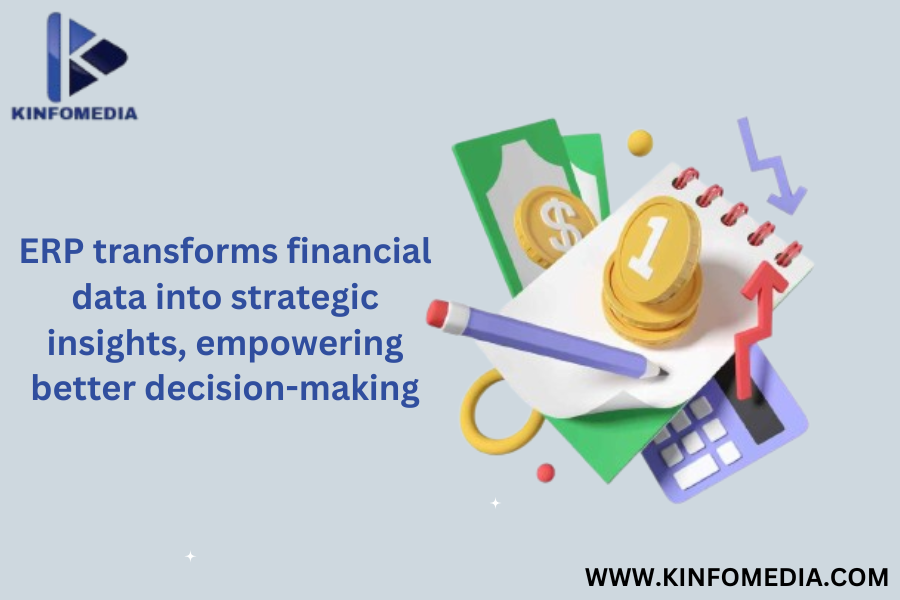How ERP Can Transform Your Financial Reporting and Analysis: In the fast-paced world of business, accurate financial reporting and insightful analysis are crucial for making informed decisions. Traditional methods of financial reporting can be time-consuming, prone to errors, and often lack the real-time insights that organizations need to stay competitive. By integrating financial data across various departments, ERP can revolutionize how businesses handle financial reporting and analysis. Here’s how.
How ERP Can Transform:
1. Centralized Data Management
One of the most significant advantages of an ERP system is its ability to centralize financial data. Instead of having information spread across multiple spreadsheets or systems, an ERP integrates data from finance, sales, inventory, and other functions into a single platform. This centralization ensures that everyone in the organization is working with the same information, reducing discrepancies and improving accuracy.
2. Real-Time Reporting
With traditional reporting methods, generating financial statements can take days or even weeks. ERP systems enable real-time reporting, allowing businesses to access up-to-date financial information instantly. This capability is essential for timely decision-making, enabling management to respond quickly to changes in the market or business environment.
3. Enhanced Accuracy
Manual data entry and outdated systems often lead to errors in financial reporting. An ERP system automates data collection and entry, minimizing the risk of human error. With built-in checks and validations, organizations can trust that their financial reports reflect the actual state of their finances, leading to more reliable decision-making.
4. Comprehensive Financial Analysis
ERP systems come equipped with advanced analytical tools that allow for in-depth financial analysis. Businesses can generate various reports, including profit and loss statements, cash flow forecasts, and budget vs. actual analyses. These reports provide valuable insights into financial performance, helping organizations identify trends, variances, and areas for improvement.
5. Budgeting and Forecasting
ERP systems facilitate more effective budgeting and forecasting processes. With historical data and real-time insights at their fingertips, finance teams can create more accurate budgets and forecasts. This capability allows organizations to plan better for the future, allocate resources more effectively, and set realistic financial goals.
6. Improved Compliance and Audit Readiness
systems help organizations maintain compliance by automating reporting processes and ensuring that financial data is accurate and up to date. Additionally, having all financial information centralized makes it easier to prepare for audits, reducing the time and effort required during audit seasons.
7. Customizable Reporting Dashboards
systems offer customizable reporting dashboards that allow users to create visual representations of financial data. These dashboards provide a clear view of key performance indicators (KPIs), enabling executives and managers to monitor financial health at a glance. Customizable reports can be tailored to specific roles or departments, ensuring that relevant information is readily accessible.
8. Scenario Planning
systems facilitate scenario planning, enabling businesses to model different financial scenarios based on varying assumptions. This feature is particularly useful for strategic planning, allowing organizations to assess the potential impact of different decisions or market conditions on their financial performance.
Conclusion
In an increasingly complex business landscape, the ability to generate accurate financial reports and conduct in-depth analyses is paramount. By implementing an ERP system, organizations can transform their financial reporting and analysis processes, enabling them to make data-driven decisions with confidence. With centralized data, real-time insights, and advanced analytical tools, ERP empowers businesses to enhance their financial performance, improve compliance, and drive sustainable growth.
Investing in an ERP system is not just about streamlining financial processes; it’s about unlocking the potential for strategic financial management that can set your organization apart in a competitive marketplace.






Leave a Reply